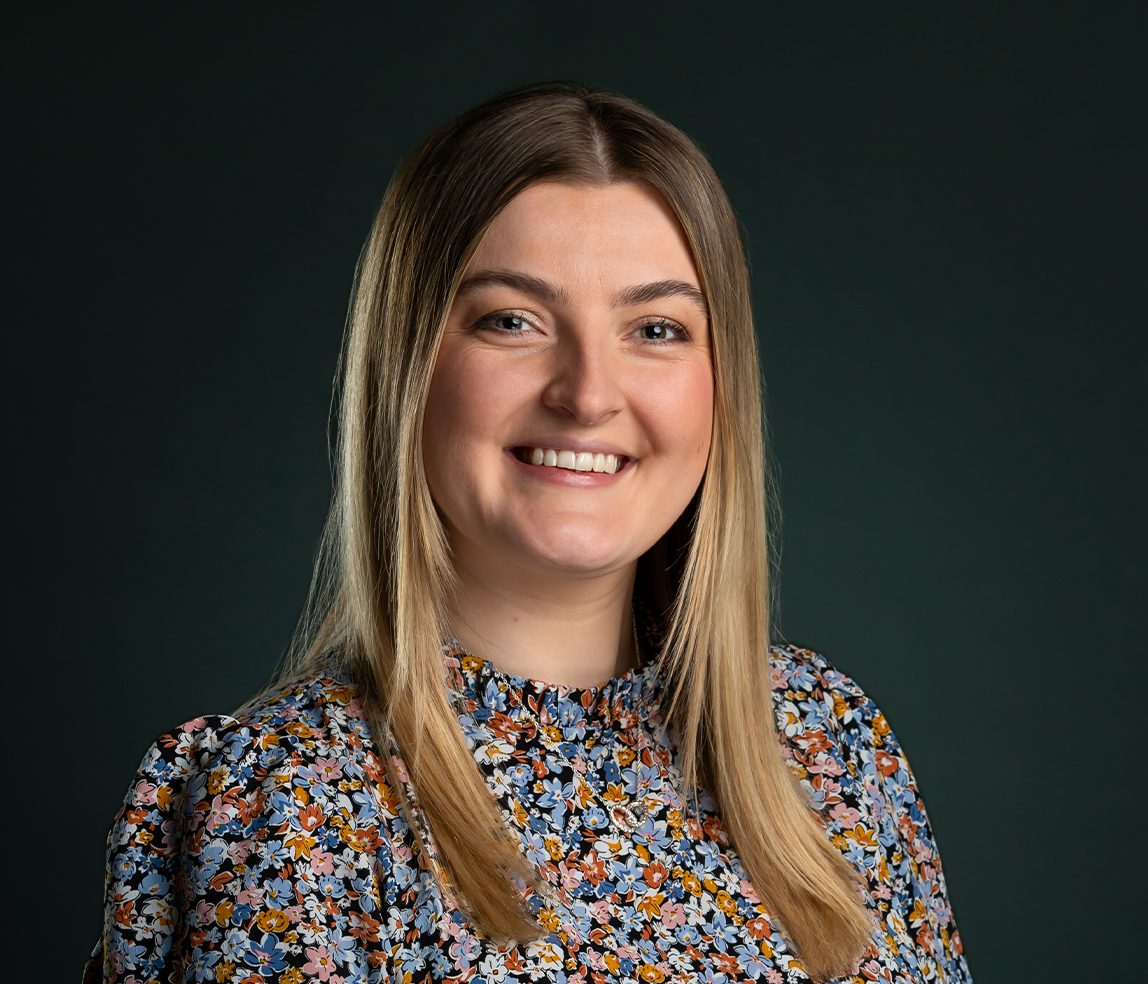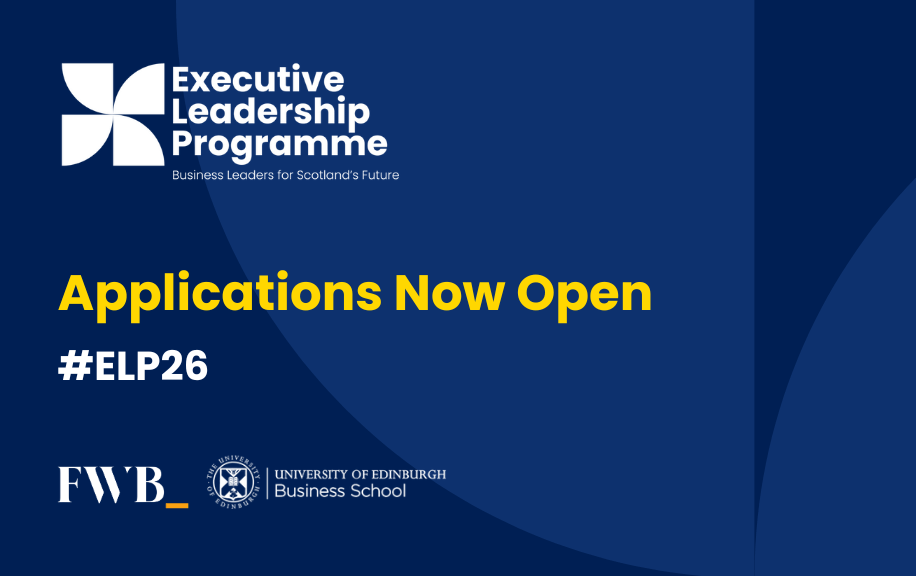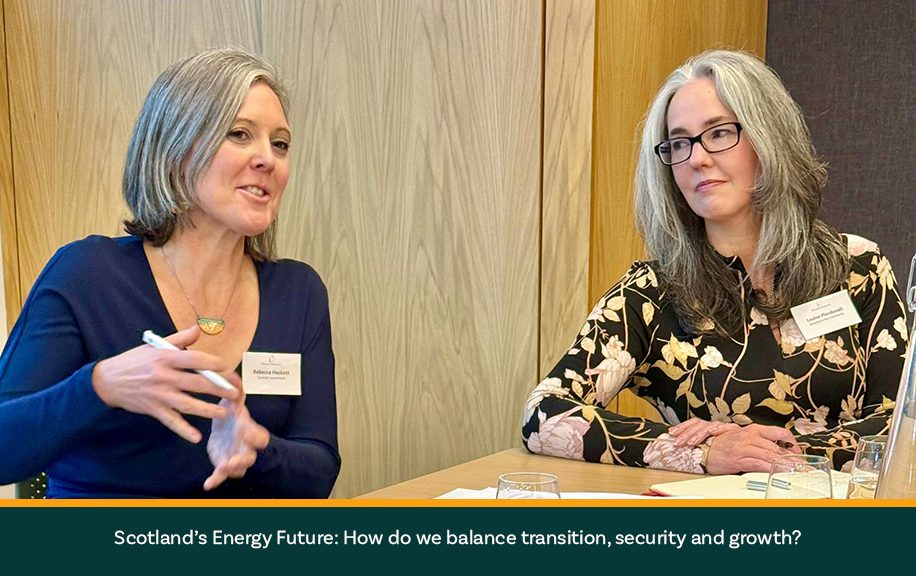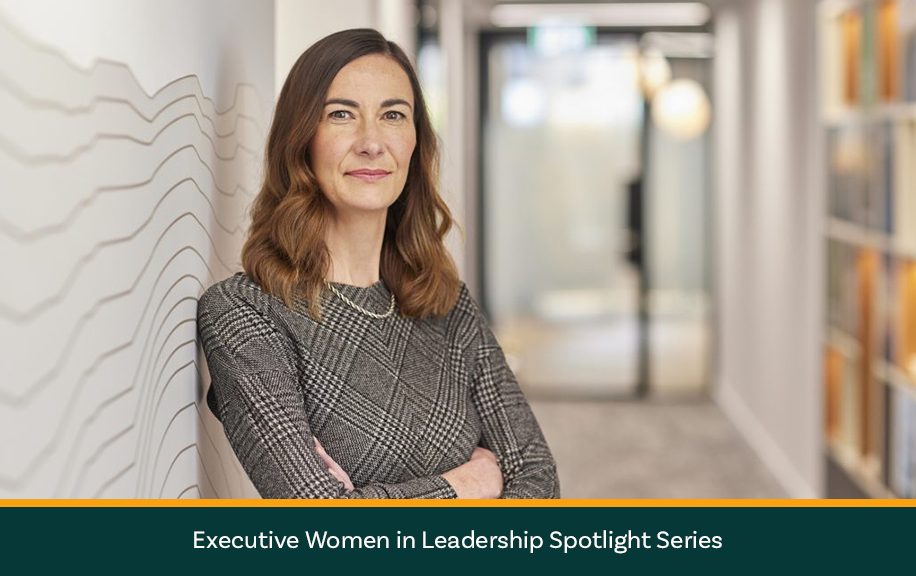Contact the team at FWB to discuss your individual or company requirements, or to discover more about our specialist services.
Adaptive Leadership in a Rapidly Changing World
7 October 2025
- Leadership Development
- Thought Leadership
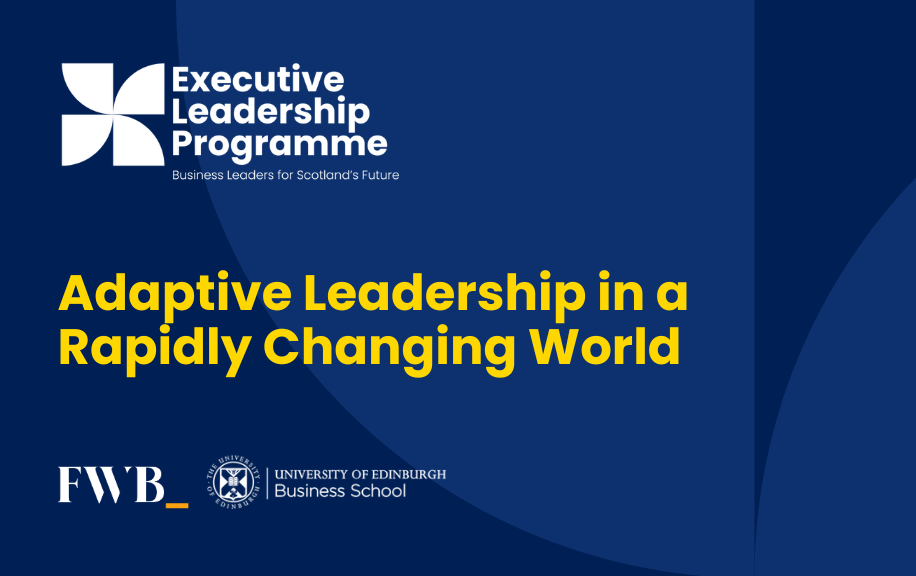
Last month, we launched our 2025 Executive Leadership Programme (ELP), hosted in partnership with the University of Edinburgh Business School and FWB. The session, titled “Adaptive Leadership in a Rapidly Changing World“, explored how leaders can navigate complexity, uncertainty, and disruption with agility, purpose, and resilience.
Chaired by Prof. Susan Murphy and Judy Wagner, the evening featured contributions from two exceptional guest speakers:
- Louise Smith OBE, Chair of Innovate Finance
- Dr Sarah Ivory, former Senior Lecturer in Executive Education, Climate Change and Sustainability at the University of Edinburgh Business School
Together, they challenged delegates to think critically about the evolving demands of leadership in the face of technological transformation and climate change.
Leadership in a Time of Polycrisis
Prof. Susan Murphy opened the session by framing the concept of adaptive leadership – a style that prioritises flexibility, learning agility, and resilience. In today’s world, leaders are not solving one crisis at a time but navigating interconnected crises that amplify each other. From climate disruption and geopolitical tensions to technological acceleration and economic volatility, the need for adaptive thinking has never been greater.
“You can be an authentic leader, a transformational leader, an inclusive leader… but what matters most is how you adapt and help others adapt.”
Climate Change and Sustainability
Dr Sarah Ivory brought clarity and urgency to the climate conversation. Her message was clear: you don’t need to be a climate expert to lead on climate. Instead, leaders must understand the impact of climate change on their organisations, and the impact of their organisations on climate change.
“Leadership is never done. Your problems are never solved. Either there’s a new problem, or that problem is only really dealt with temporarily,” she said. “If you’re the sort of leader who wants cognitive closure—to tick a box and move on—you’re not an adaptive leader.”
Sarah introduced a simple but powerful framework to help leaders understand the impact of climate change on their business, and the impact of their business on climate change. This helped delegates explore:
- Risks and opportunities arising from climate change
- Their organisation’s contribution to the crisis or to solutions
- The role of leadership in shaping strategy, culture, and stakeholder engagement
She also introduced the concept of “confident ignorance” – the idea that leaders must be willing to admit what they don’t know, ask the right questions, and surround themselves with people who can help them learn. She encouraged leaders to embrace uncertainty:
“Everything is always uncertain. We’re not living in a particularly uncertain time – except that the last two decades have been relatively certain. If you’re waiting for certainty, you’ll be waiting a long time.”
AI and Technology: Disruption or Opportunity?
Louise Smith OBE brought a dynamic perspective on the role of AI and emerging technologies in shaping the future of business. Drawing on her experience in financial services and tech innovation, Louise emphasised that AI is not just a technical challenge – it’s a leadership challenge.
“AI exposes every weakness in your business model – all at the same time. Data, talent, accountability, culture – it all comes out.”
She urged leaders to be brave, curious, and collaborative:
“You don’t need to be an expert in AI. You need to manage the risks and ask the right questions. The biggest risk is doing nothing.”
Louise also highlighted the importance of storytelling in leadership:
“Create stories people can step into. Even if you don’t have all the answers, help people feel confident in the journey.”
Confidence in Your Ignorance
One of the most resonant themes of the evening was the idea that leaders must be willing to admit what they don’t know.
“Don’t be ashamed of not understanding,” said Sarah. “Have confidence in your ignorance. That’s how you learn.”
Louise echoed this sentiment:
“The leaders who are winning are the ones who say, ‘I don’t know.’ That’s brave. That’s adaptive.”
Leadership in Practice
Judy Wagner reminded delegates that the ELP is a safe space to challenge themselves, address weaker areas, and build confidence. With no competition and judgment, participants are encouraged to take risks, try new approaches, and learn from each other.
The session concluded with a lively boardroom simulation, where delegates tackled dilemmas around climate strategy and AI investment. The energy, insight, and collaboration in the room were a testament to the strength of the network and the calibre of the leaders involved.
As we continue this journey, we invite all participants to stay curious, stay connected, and stay committed to becoming the adaptive leaders Scotland needs for the future.
If you are interested in joining our 2026 cohort, please email us at elp@fwbltd.com.
Jointly run by FWB and the University of Edinburgh Business School (UEBS), The Executive Leadership Programme is designed to enable the next generation of leaders across multiple ownership classes or organisations within a broad range of private, public and non-profit sectors.
